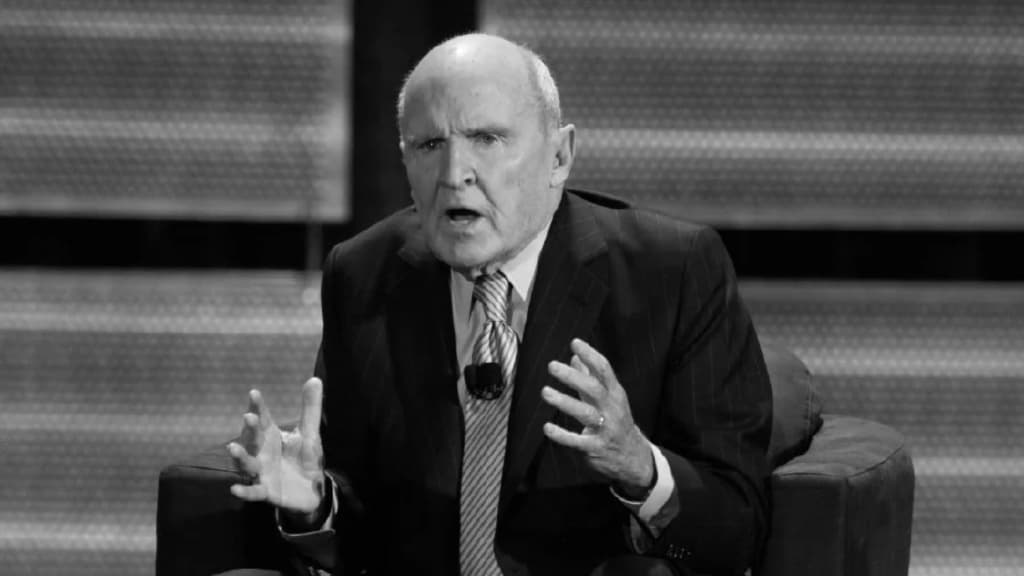
"If you’ve got a team member who doesn’t deliver, and you’re not dealing with it, you’re not leading."
Jack Welch
Former CEO of GE
- Date
Holding Tension, Not Grudges: How Real Leaders Drive Accountability
posted in Business Coaching

Adam Kreek
A senior sales leader I coach is doing the hard work of leadership—and it’s paying off.
He’s rolling out a new compensation structure. He’s launching dashboards to track sales activity. And most importantly, he’s shifting how he holds people accountable.
This leader is stepping into what I call tension-holding leadership. He no longer smooths things over. He doesn’t avoid discomfort. He chooses to lead with clarity, courage, and compassion.
Here’s how he applies the Tension Holding Accountability Framework in real time.
1. Clarify the Standard
He’s preparing for a crucial conversation with a team member who’s underperforming. Over the past few months, he gives subtle nudges. Now, he shifts from suggestion to structure.
The standard is clear: the rep must deliver 10 active opportunities by September 30. That likely requires 20–30 outbound pitches. He also emphasizes that the best producers sell a broader mix of products, which supports the business’s production side and taps into a major opportunity.
Ask yourself: Have you clearly articulated what success looks like? Or are you hoping they figure it out?
2. Ground in Values
Most accountability issues are unspoken values conflicts. This leader connects expectations to values like contribution, adaptability, and momentum. The customer acquisition that this rep achieves has a direct impact on the shop and the engineers who rely on new business to keep doing their jobs.
Selling only one product line doesn’t reflect those values—it undermines them. Performance conversations hit harder when they’re grounded in what matters most.
Ask yourself: What value is being compromised by this gap?
3. Hold the Mirror (Non-Anxious Confrontation)
When it’s time to confront, the leader stays grounded. If the rep deflects or dives deep into justifications, he keeps things high-level and focused. He even sets a time boundary: “We don’t have long—let’s keep this direct.”
Using the SBI method (Situation – Behavior – Impact), he says: “You haven’t brought in new client activity over the last quarter. That’s slowing team momentum and placing pressure on others.”
Then he holds silence.
Ask yourself: Can you hold the silence without rushing in to rescue or explain?
Kreek-ism: “Silence is like a pull-up for your nervous system.”
4. Name the Choice
Accountability is an invitation, not a punishment.
This rep has two weeks to create and present a plan. If he meets the goal—great. If not, key accounts will be reassigned to other team members who are actively selling across product lines. The rep will lose income.
The leader ends the conversation with: “I’ve seen strong results from you before. I want to see that performance again. I look forward to reviewing your plan in two weeks.”
Ask yourself: Are you making the growth path clear without doing the work for them?
5. Follow Through Without Drama
Saying something matters and not following through? That’s how leaders lose trust.
This leader sets up monthly check-ins to track progress. The expectations are documented. The consequences are clear. No drama. Just clarity.
Ask yourself: Are you prepared to be firm yet kind if nothing changes?
Build Your Capacity to Hold Tension
Holding tension isn’t about being tough—it’s about being aligned. If you want to build this skill, try:
- Practicing micro discomforts: say no more often, ask for what you need, stay silent longer.
- Regulating instead of rescuing: breathe, ground, pause.
- Reframing accountability: Not conflict → but coaching. Not tension → but transformation.
Accountability isn’t a wartime battle—it’s an invitation to clarity.
That’s how high-integrity leaders build strong teams—and stronger businesses.
–––––
Adam Kreek is on a mission to positively impact organizational cultures and leaders who make things happen.
Kreek is an Executive Business Coach who lives in Victoria, BC, near Vancouver, British Columbia, Canada, and Seattle, Washington, USA, in the Pacific Northwest. He works with clients globally, often travelling to California in the San Francisco Bay Area, Atlanta, Georgia, Toronto, Ontario and Montreal, Quebec. He is an Olympic Gold Medalist, a storied adventurer and a father.
He authored the bestselling business book, The Responsibility Ethic: 12 Strategies Exceptional People Use to Do the Work and Make Success Happen.
Discover our thoughts on Values here.
Want to increase your leadership achievement? Learn more about Kreek’s coaching here.
Want to book a keynote that leaves a lasting impact? Learn more about Kreek’s live event service here.